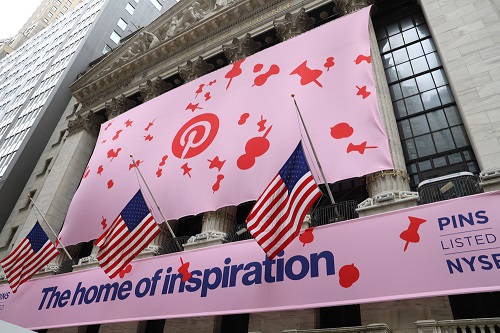Silicon Valley is hot.
The recent initial public offerings of tech unicorns Lyft (Nasdaq: LYFT) and Pinterest (NYSE: PINS) and the upcoming $100 billion listing of “hectocorn” Uber have shifted investors’ attention back to the U.S. tech sector.
Silicon Valley real estate agents are also licking their chops at the prospect of selling high-end properties to the latest generation of Silicon Valley millionaires.
Meanwhile, traditional value investors are stuck in a rut.
Consider the example of value investing icon Warren Buffett.
Over the past decade, Buffett’s Berkshire Hathaway (NYSE: BRK-B) has returned 13.30% per year. This trails the 15.08% annual returns of the S&P 500 by close to 2%.
The contrast with the tech sector is even more startling. Over the past 10 years, the tech-heavy Nasdaq index has generated an average return of 20.04% per year.
That means that the Oracle of Omaha has trailed the U.S. tech index by an average of 6.74% every year since 2009!
Now Berkshire may roar back, as it did after the dot-com bust of 2000. But a decade of underperformance is a long time.
And it does highlight the difference in investment philosophies between today’s tech investors and traditional value investing.
Marc Andreessen vs. Warren Buffett
Marc Andreessen is a Silicon Valley icon.
As the co-creator of Mosaic – the first internet browser in the early 1990s – Andreessen is the reason you’re reading this on a computer screen today.
He also co-founded Netscape, the world’s first internet browser company, whose public offering in 1995 launched the dot-com boom.
Today, Andreessen is a leading venture capitalist in Silicon Valley. And Andreessen has studied Warren Buffett’s investment philosophy carefully.
His conclusion?
He and Buffett are wired differently.
Andreessen points out that the secret to Buffett’s success is that he bets against change. Every Buffett investment assumes that things will go on pretty much as they always have.
By investing in the Kraft Heinz Company (Nasdaq: KHC) and the Coca-Cola Company (NYSE: KO), Buffett is betting that U.S. consumers will continue to eat hot dogs with ketchup and drink Coke, just as they have in the past.
According to Buffett’s philosophy, consistent profits generated by businesses with wide moats trump “story stocks” over the long run.
Andreessen’s philosophy is the exact opposite.
Sitting atop his perch on Sand Hill Road in Palo Alto, California, Andreessen bets exclusively on ideas that he expects will change the world.
Andreessen’s highest-profile investments, Facebook (Nasdaq: FB) and Twitter (NYSE: TWTR), barely existed a decade ago.
At least five of Andreessen’s unicorns – Airbnb, Lyft, PagerDuty, Pinterest and Slack – will go public in the next 12 months.
Put another way…
Buffett created massive value for Berkshire Hathaway shareholders over the past 50-plus years. But Buffett has never invested in anything that has changed the world.
Consider how Buffett and Andreessen view mistakes…
When Buffett makes a mistake, it’s because the world changes in ways that he didn’t expect. People start drinking less Coca-Cola or consuming less Heinz ketchup than before.
When Andreessen makes a mistake, it’s because the world didn’t change the way he expected it to. Andreessen’s biggest mistake to date has been not investing in ride-share giant Uber.
Buffett’s Blind Spot
During the dot-com boom of the late 1990s, Buffett famously stuck to his guns. He refused to abandon his time-tested, value-driven strategy.
That’s because internet business models will never make sense in a value investor’s world.
But here is what Buffett missed: Railroads and factories all require massive amounts of capital investment to expand.
In contrast, dominant tech companies could self-fund indefinitely. That’s why companies like Google have more cash than they know what to do with.
As a result, Buffett missed out on the most successful U.S. companies of the past generation.
The single most successful stock in the world over the past 20 years has been Amazon (Nasdaq: AMZN).
And its founder, Jeff Bezos – 33 years Buffett’s junior – has already lapped Buffett in the world’s wealthiest sweepstakes.
Buffett himself called Bezos “the most remarkable business person of our age.” And yet, Buffett never invested a dime in Amazon.
To his credit, Buffett’s lieutenants have pushed Berkshire to invest in technology companies.
Berkshire now owns 240 million shares of Apple (Nasdaq: AAPL), worth almost $50 billion. Apple is now Berkshire Hathaway’s single most significant investment and makes up 21% of its public stock holdings.
(Still, Buffett’s bet on Apple is much smaller than Buffett’s collective bet on U.S. banks.)
The lesson?
The four most dangerous words in investment remain “This time it’s different.”
So, will the exponential growth driving the tech sector beat traditional value investing over the long term?
Time will tell.
But technology’s performance over the past decade confirms that there’s more than one way to skin an investment cat.
And that’s a lesson that even Warren Buffett has taken to heart.
Good investing,
Nicholas
